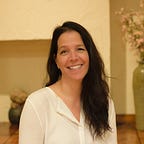How to become a writer
I happened across Lorrie Moore’s essay while reading another book about writing (The Forest for the Trees: An Editor’s Advice to Writers by Betsy Lerner). “How to become a writer” starts with the following depressing advice: “First, try to be something else. Anything else.”
I tried that. I became a teacher for 16 years, and I loved it.
During that time I was also a parent. Parenting is the worst job — unrelenting, unrewarding, and unsatisfying. If it sounds like I am complaining or that I do not love my child, neither of those are true. My child is my heart outside my body, and there is nothing to complain about anymore, as my heart is moving across the country in July, and all there is on that subject is a bit of anticipatory sadness.
But I digress.
I have been a writer since I could hold a crayon. I have recorded everything. I am a list maker, and I have a compulsive need to write things down. I keep morning pages (in the morning, natch) and a journal (at night).
There are scraps of notes in my phone, first lines and images written down. I have bolted upright from sleep and blearily typed into that same phone entire plots of novels that I will most likely never write.
When I was eight or nine, I won an essay contest (“Your favorite zoo animal” — the black panther, mostly because I never saw it) and read my essay on the Washington D.C. NPR station.
I wrote terrible, angsty poetry and prose in my teens and early twenties. It was all stolen, thankfully, right before we moved from Seattle back to the East Coast.
I documented my grief online when my husband died in 2013. I can barely read some of those entries.
After the dust of death settled around me and my daughter and we moved to Baltimore, I started writing professionally, leaving teaching. I was unable to care for other people’s children anymore while grieving and caring for my own angry child.
I have always written. I have always been a writer. What I have struggled most with is the process of writing itself.
I have learned, after trying to emulate the path of other writers, that I do not have a routine when it comes to my writing. Generally, early morning for my own work is best, but I can do my mercenary writing whenever.
I can’t rush or push or just show up every day and things work out. Stephen King’s excellent book, On Writing: A Memoir of the Craft, makes much of his discipline and daily production. While I admire and sometimes gaze longingly at the pages King stacks up daily, that work is not for me.
For me, becoming a writer has meant honoring the entire process, not just the physical act of arranging words on a page.
This includes the two weeks of deep thought that occur before the entire piece comes rushing out.
Or the baby steps I take on an unfamiliar project (like the foraging book, a project unlike any other I have ever written before and due out in the fall of 2021 from Akinoga Press).
Or the long walks, solvitur ambulando, that are both part of and a step away from whatever I am working on.
This process of mine includes procrastibaking, horseback riding, and reading.
The way to become a writer is by writing, certainly, but it’s also by finding out what makes your writing process unique to you — pleasurable even when it’s not easy. The struggle of edits; the frustration of ideas that balk like a stubborn mule; the idea that someone has already written what you’re writing, and better: these can still be met with lovingkindness and a wild appreciation for the fact that you are drawing breath in this world and privileged enough, no matter the struggle, to be able to receive — and work through- these frustrations.
I have learned that my writing is as much a part of me as my fingerprints — it is unlike anyone else’s in both process and product, unique to me and my particular way of stringing together parts of speech.
How to become a writer?
Yes, by writing. Yes, by reading. But also by allowing your process to be nothing like anyone else’s — without apology and adapting to change.
It’s only taken me four decades to make my peace with this unruly process of mine. Where are you in yours?
#writing #writingprocess #Baltimore #writingcraft
